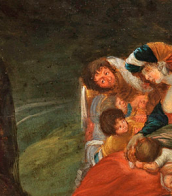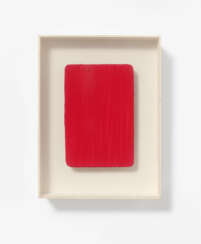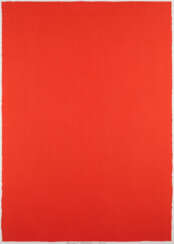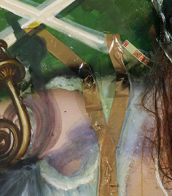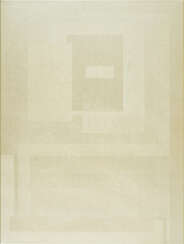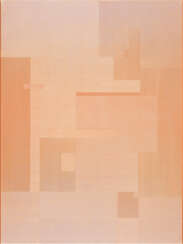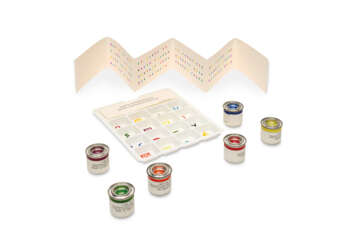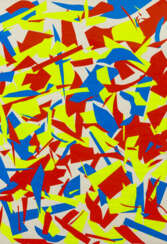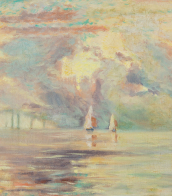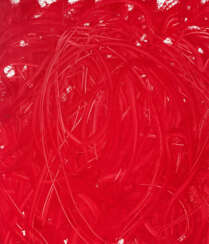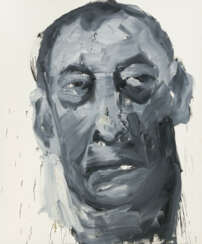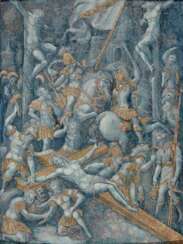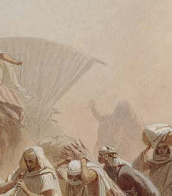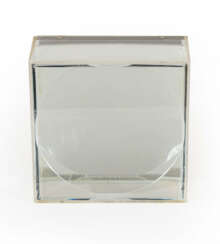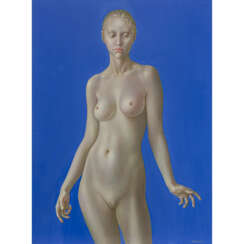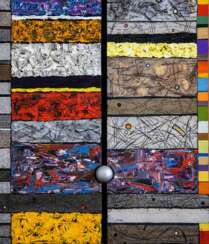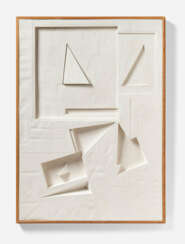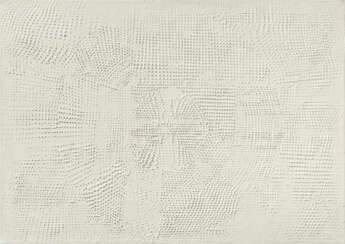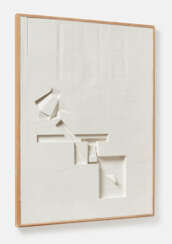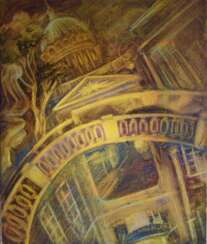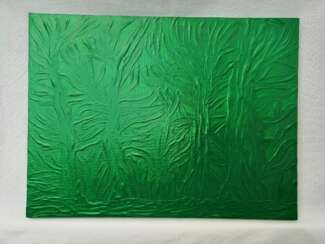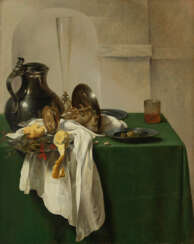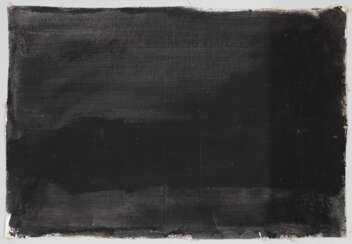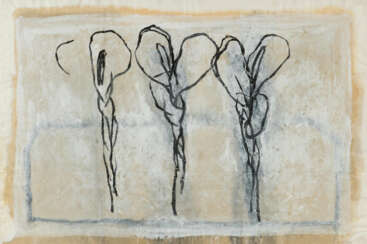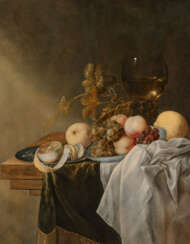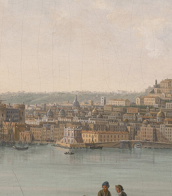peinture monochrome
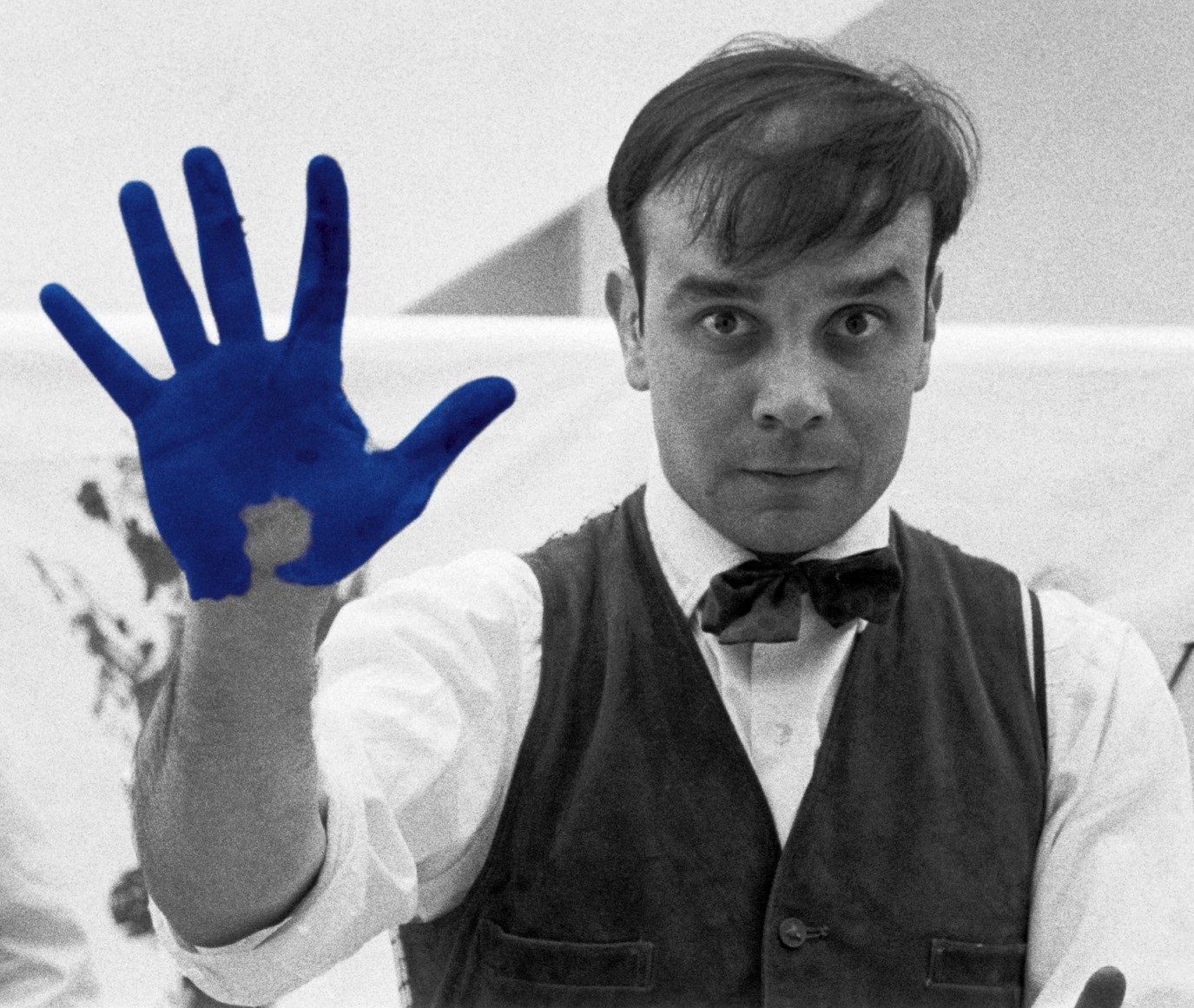
Yves Klein was a French artist, renowned for his innovative use of pure color and his approach to the conceptual aspects of monochrome painting. Klein, born in 1928 in Nice, France, left an indelible mark on the art world despite his brief career, which ended with his untimely death in 1962.
Klein is best known for his invention of International Klein Blue (IKB), a deep blue hue which he registered as a trademark color and used extensively in his works. This vibrant blue, which he developed in collaboration with a chemist, represented more than just a color; it was a means of evoking the immateriality and boundlessness of space. His monochrome blue canvases, large-scale public performances, and pioneering works in performance art established him as a leading figure in the Nouveau Réalisme movement in post-war Europe.
Aside from his famous blue monochromes, Klein’s Anthropometries series, where he used nude women as 'living brushes' to transfer blue paint onto canvases, is another testament to his innovative artistic methods. These performances, often accompanied by a small orchestra playing his "Monotone Symphony" — a single, continuous note played for twenty minutes followed by twenty minutes of silence — challenged traditional perceptions of the artist's role and the creation process.
Visit our gallery's website to explore more about Yves Klein and sign up for updates on new acquisitions and exclusive auction events related to his profound legacy.
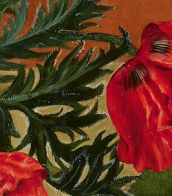
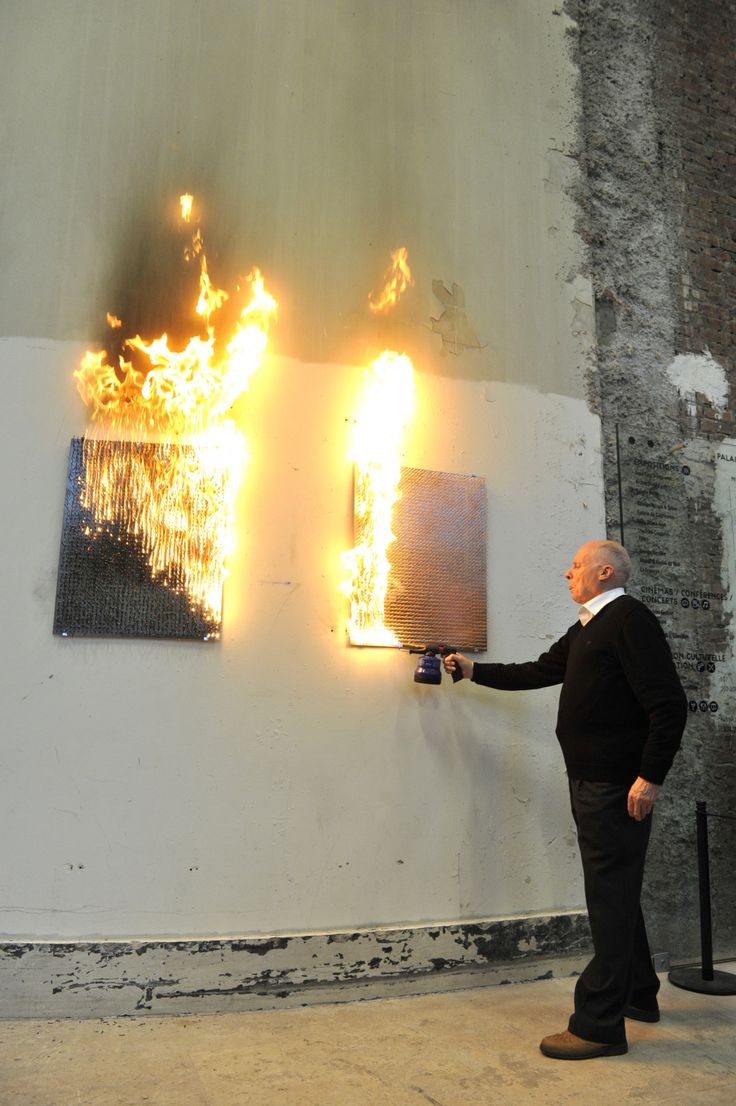
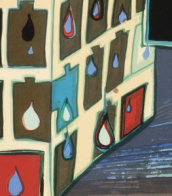


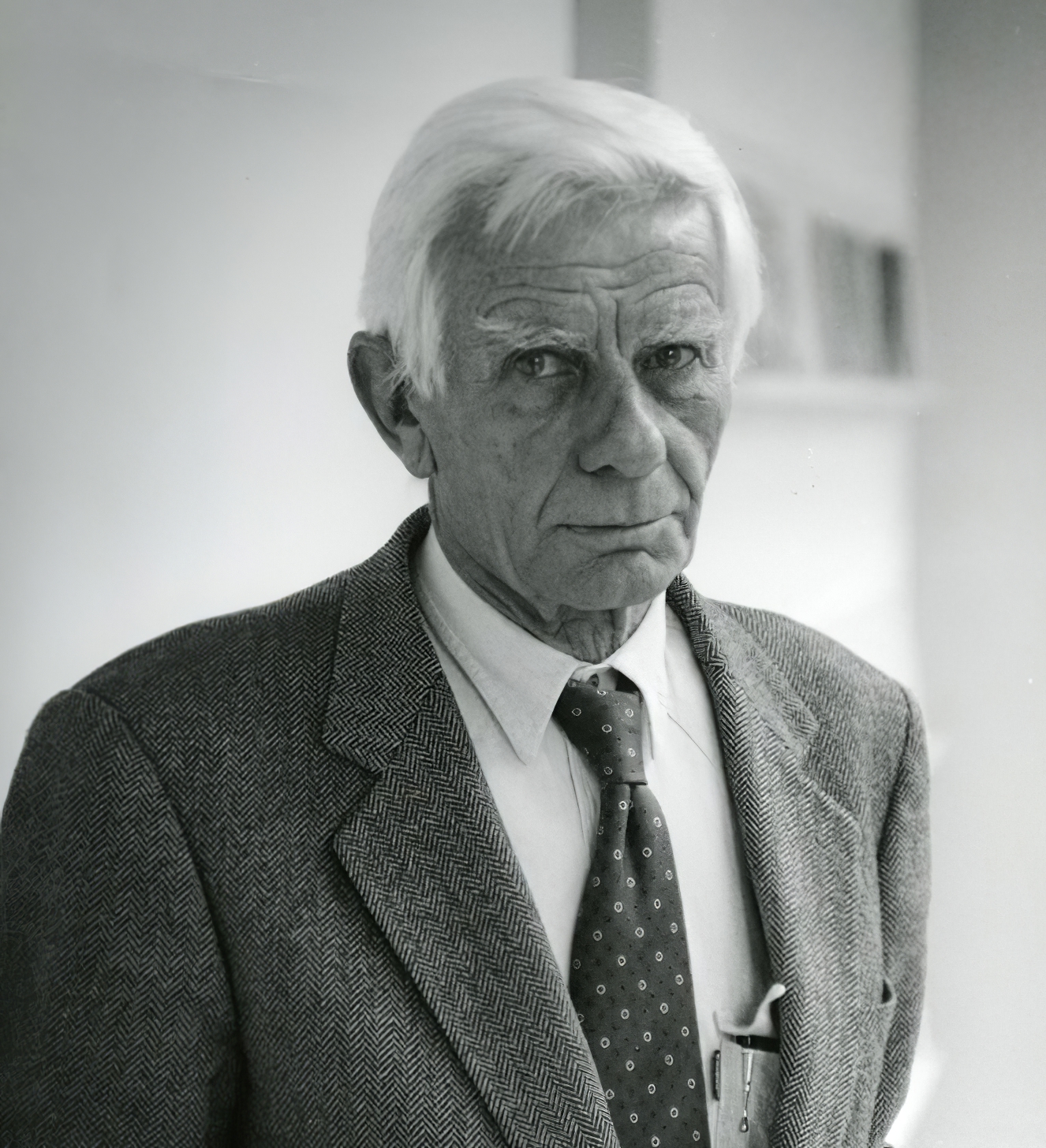
Enrico Castellani was an Italian artist. He was active in Italy from the early 1960s, and associated with Piero Manzoni and Vincenzo Agnetti. Castellani is known for his "paintings of light". He studied at the Ecole Nationale Superieure in Belgium, then settled in Milan. Castellani collaborated with artists such as Getulio Alviani, Piero Manzoni, and others. In 2010 he received the Praemium Imperiale for painting.
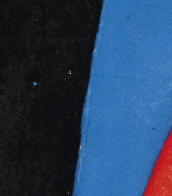

Yves Klein was a French artist, renowned for his innovative use of pure color and his approach to the conceptual aspects of monochrome painting. Klein, born in 1928 in Nice, France, left an indelible mark on the art world despite his brief career, which ended with his untimely death in 1962.
Klein is best known for his invention of International Klein Blue (IKB), a deep blue hue which he registered as a trademark color and used extensively in his works. This vibrant blue, which he developed in collaboration with a chemist, represented more than just a color; it was a means of evoking the immateriality and boundlessness of space. His monochrome blue canvases, large-scale public performances, and pioneering works in performance art established him as a leading figure in the Nouveau Réalisme movement in post-war Europe.
Aside from his famous blue monochromes, Klein’s Anthropometries series, where he used nude women as 'living brushes' to transfer blue paint onto canvases, is another testament to his innovative artistic methods. These performances, often accompanied by a small orchestra playing his "Monotone Symphony" — a single, continuous note played for twenty minutes followed by twenty minutes of silence — challenged traditional perceptions of the artist's role and the creation process.
Visit our gallery's website to explore more about Yves Klein and sign up for updates on new acquisitions and exclusive auction events related to his profound legacy.

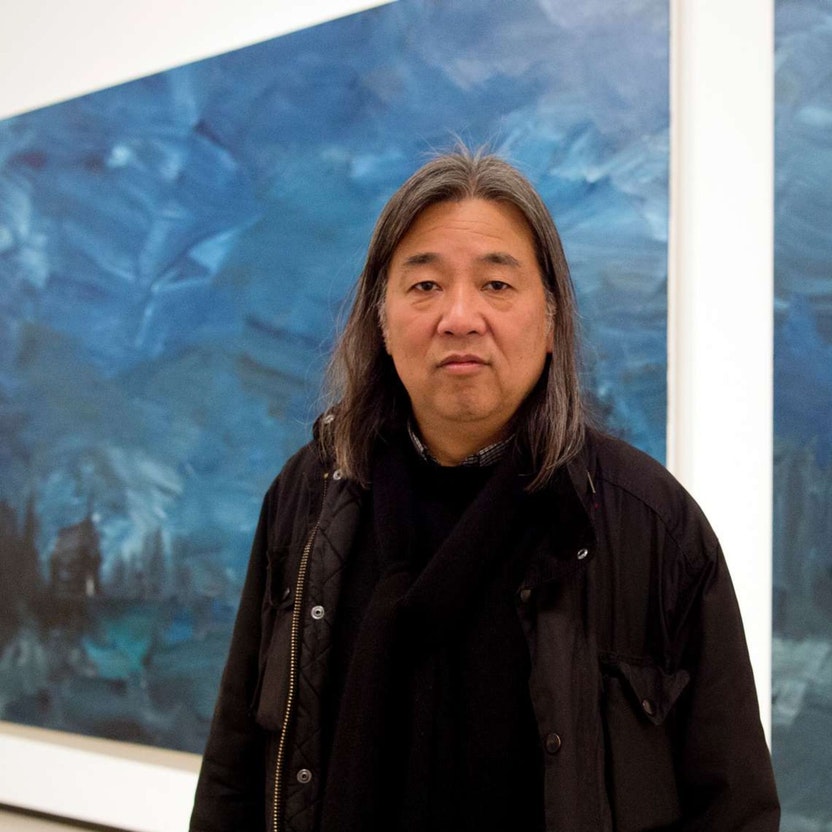


Normund Braslins is a contemporary Latvian artist, photographer and graphic artist. He specialises in large-format figurative painting and teaches drawing and photography courses.
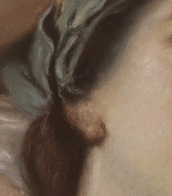

Yves Klein was a French artist, renowned for his innovative use of pure color and his approach to the conceptual aspects of monochrome painting. Klein, born in 1928 in Nice, France, left an indelible mark on the art world despite his brief career, which ended with his untimely death in 1962.
Klein is best known for his invention of International Klein Blue (IKB), a deep blue hue which he registered as a trademark color and used extensively in his works. This vibrant blue, which he developed in collaboration with a chemist, represented more than just a color; it was a means of evoking the immateriality and boundlessness of space. His monochrome blue canvases, large-scale public performances, and pioneering works in performance art established him as a leading figure in the Nouveau Réalisme movement in post-war Europe.
Aside from his famous blue monochromes, Klein’s Anthropometries series, where he used nude women as 'living brushes' to transfer blue paint onto canvases, is another testament to his innovative artistic methods. These performances, often accompanied by a small orchestra playing his "Monotone Symphony" — a single, continuous note played for twenty minutes followed by twenty minutes of silence — challenged traditional perceptions of the artist's role and the creation process.
Visit our gallery's website to explore more about Yves Klein and sign up for updates on new acquisitions and exclusive auction events related to his profound legacy.
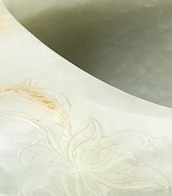
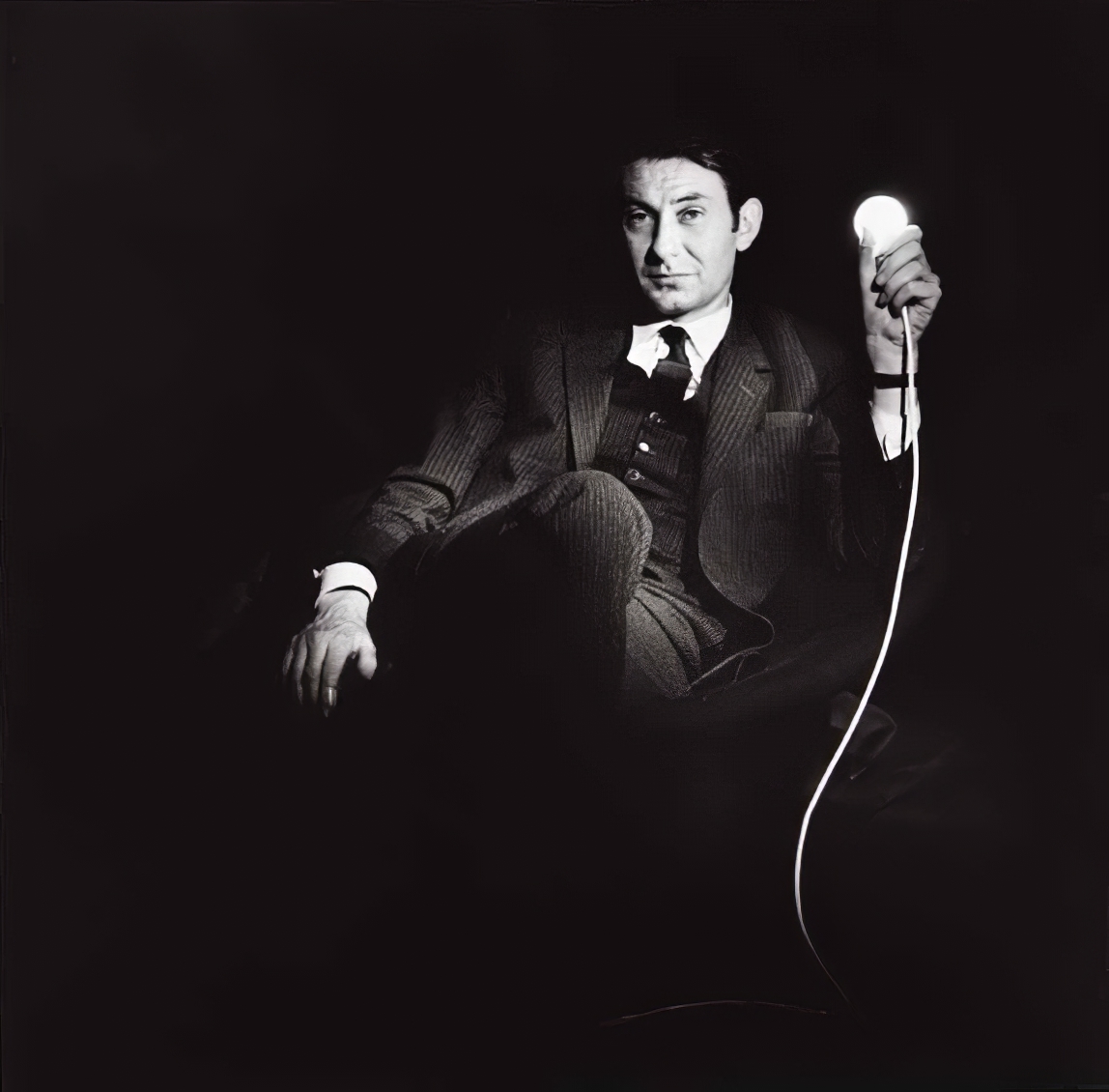
Otto Piene was a German-American artist specializing in kinetic and technology-based art, often working collaboratively.
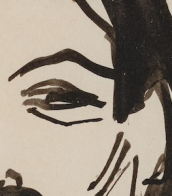


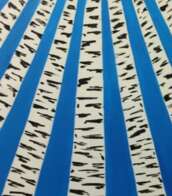
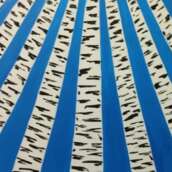
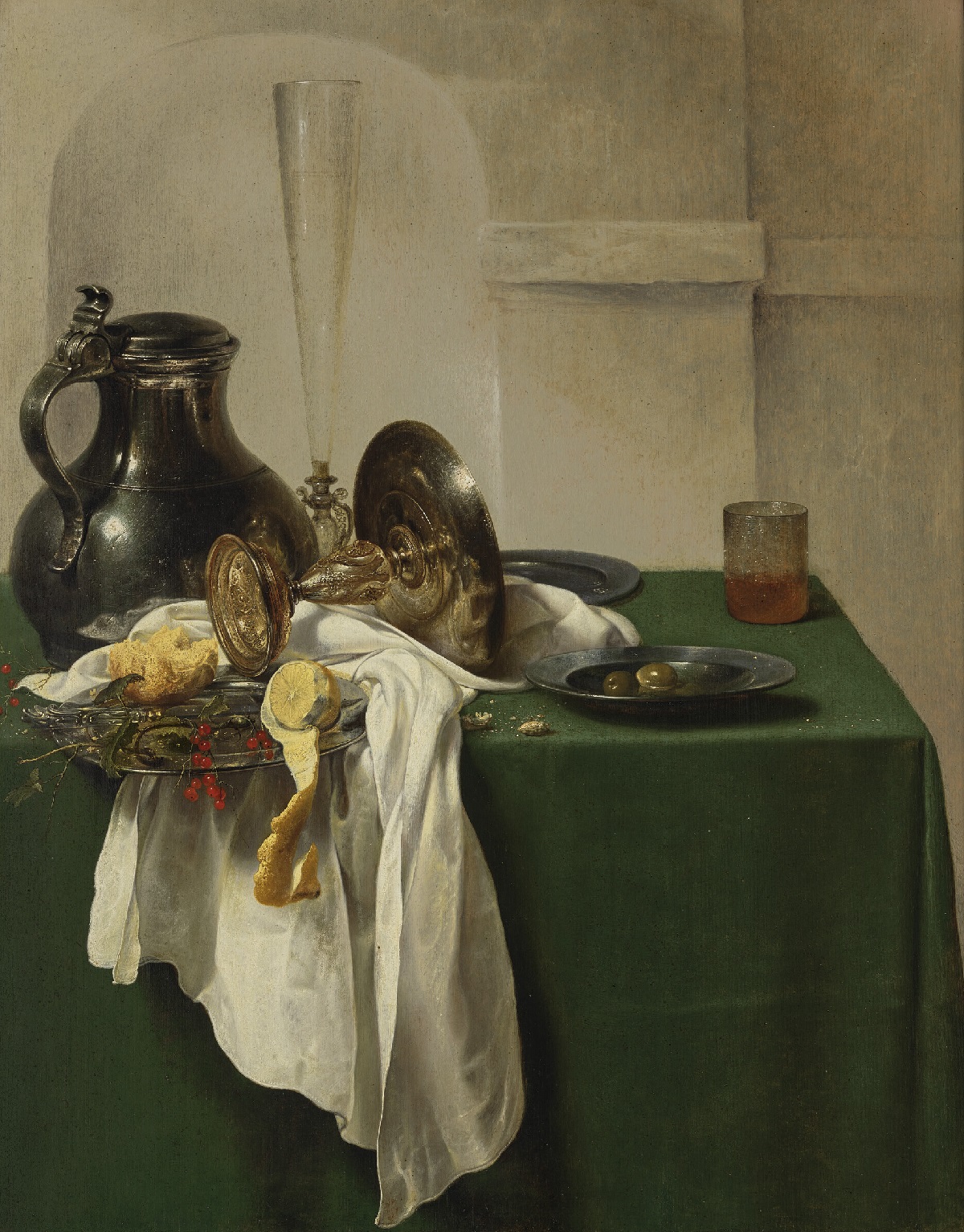
Jan Jansz. den Uyl was a painter of the Dutch Golden Age. He very much specialized in the form of still life known as the breakfast piece, or, in the elaborate style of painters like den Uyl, banquet pieces (banketjestukken). He also painted landscapes and animal paintings.
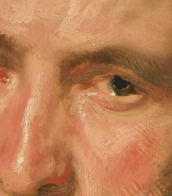

Yves Klein was a French artist, renowned for his innovative use of pure color and his approach to the conceptual aspects of monochrome painting. Klein, born in 1928 in Nice, France, left an indelible mark on the art world despite his brief career, which ended with his untimely death in 1962.
Klein is best known for his invention of International Klein Blue (IKB), a deep blue hue which he registered as a trademark color and used extensively in his works. This vibrant blue, which he developed in collaboration with a chemist, represented more than just a color; it was a means of evoking the immateriality and boundlessness of space. His monochrome blue canvases, large-scale public performances, and pioneering works in performance art established him as a leading figure in the Nouveau Réalisme movement in post-war Europe.
Aside from his famous blue monochromes, Klein’s Anthropometries series, where he used nude women as 'living brushes' to transfer blue paint onto canvases, is another testament to his innovative artistic methods. These performances, often accompanied by a small orchestra playing his "Monotone Symphony" — a single, continuous note played for twenty minutes followed by twenty minutes of silence — challenged traditional perceptions of the artist's role and the creation process.
Visit our gallery's website to explore more about Yves Klein and sign up for updates on new acquisitions and exclusive auction events related to his profound legacy.
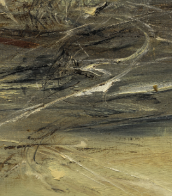
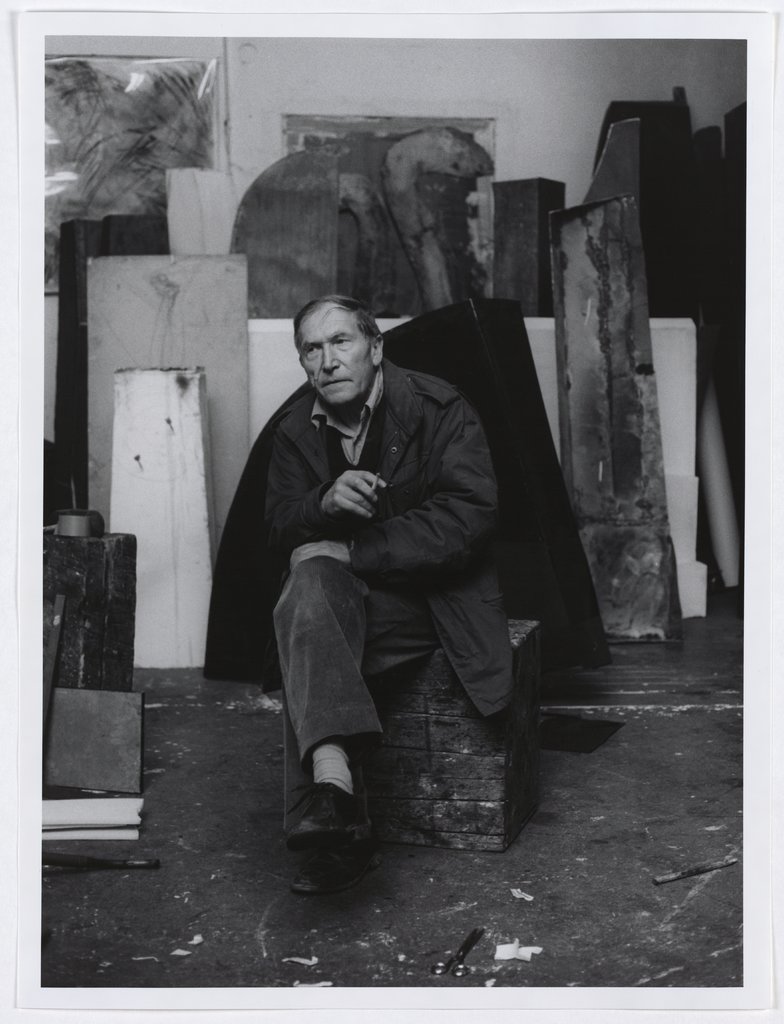
Michael Croissant was a German artist and sculptor.
